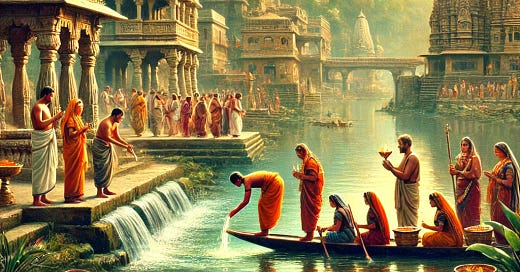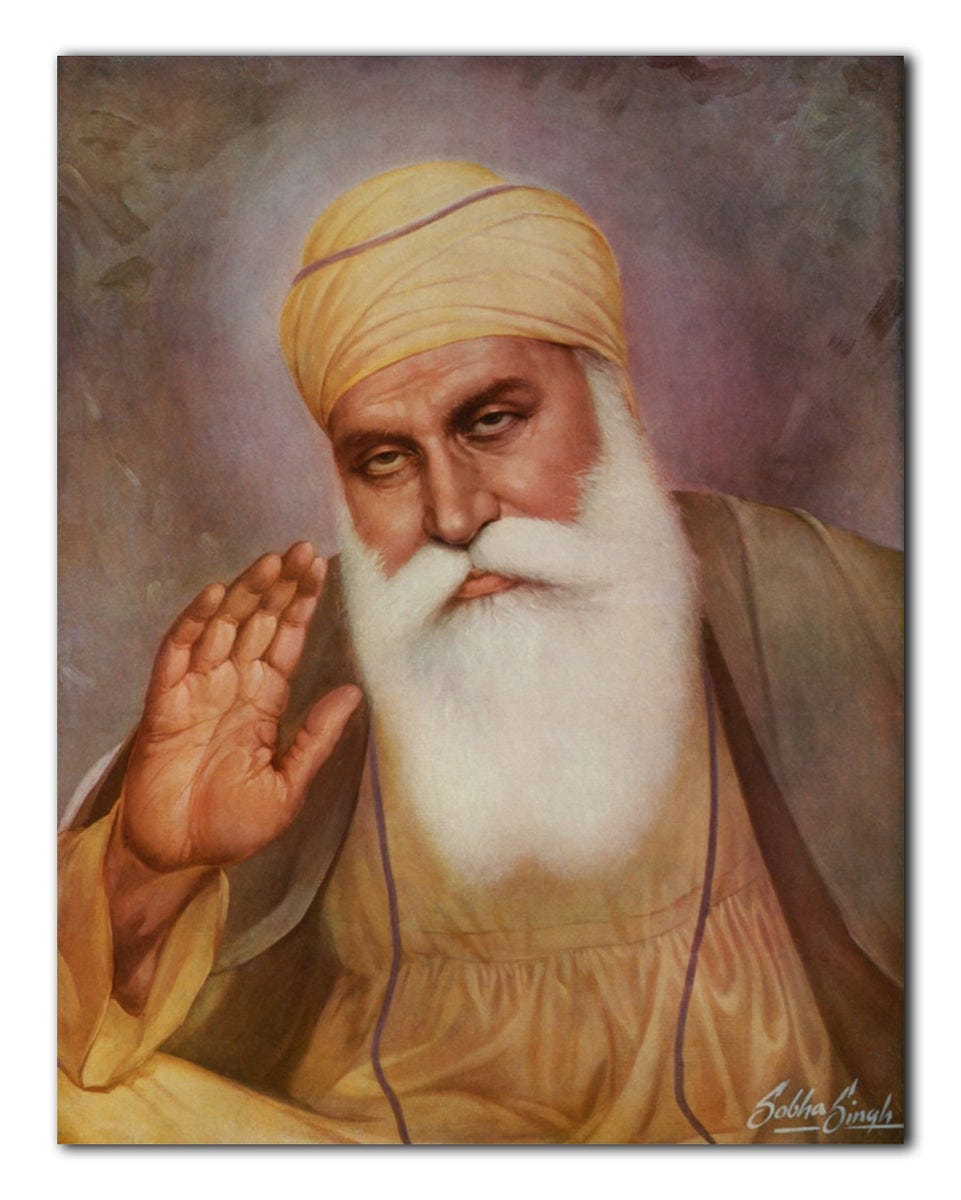Pitru Paksha: A Sacred Hindu Tradition of Ancestral Honour, Reverence, and Reflection
The Sikh Perspective: Complementary, Though Seemingly Contradictory at First Glance.
Pitru Paksha: Honouring Ancestors with Reverence and Reflection
Pitru Paksha, also known as Shradh, is a significant period in the Hindu calendar, observed over 16 days to pay homage to one’s ancestors. In 2024, this sacred time spans from September 17 to October 2. During this period, Hindus engage in various rituals, prayers, and offerings to ensure the peace and well-being of departed souls. These observances are rooted deeply in tradition and are believed to bring blessings and prosperity to the family.
The Significance of Pitru Paksha
Pitru Paksha is considered a time when the spirits of ancestors descend to the earth, awaiting offerings from their descendants. Hindus perform Shradh rituals to express their gratitude and reverence for their forebears. The rituals involve offering food, water (tarpan), and prayers, often performed by the eldest male member of the family. The belief is that these offerings nourish the souls of the deceased, bringing them peace and facilitating their onward journey in the afterlife.
The last day of Pitru Paksha, known as Mahalaya Amavasya, is the most significant. On this day, families across India perform special rituals and offer food to Brahmins and the poor, in the implicit hope of receiving blessings from their ancestors.
The Rituals and Traditions
The rituals of Pitru Paksha are steeped in symbolism. Food offerings often include pindas (balls of rice), milk, and black sesame seeds. These offerings are meant to symbolise sustenance for the ancestors in their spiritual journey. Some families even prepare the favourite dishes of their ancestors, inviting them to partake in the meal through these rituals.
Fasting, abstinence from certain foods like meat, onions, and garlic, and the performance of charity are also encouraged during this time. While regional variations in the practices of Shradh exist, the overarching theme is one of reverence, humility, and familial duty.
Sikh Perspective on Pitru Paksha
While Pitru Paksha is central to Hindu tradition, it is interesting to examine how it seemingly contrasts with Sikh beliefs, particularly as expressed by Guru Nanak Dev Ji, the founder of Sikhism. Guru Nanak Dev Ji, while deeply respectful of individuals and their traditions, was critical of rituals that he believed were performed mechanically without understanding or sincere intent.
One of the most telling stories from Guru Nanak’s life occurred when he visited Haridwar, a prominent Hindu pilgrimage site. Here, he observed people throwing water eastward, believing it would reach their deceased ancestors. In a symbolic gesture, Guru Nanak began throwing water westward, towards Punjab, claiming that he was watering his crops. When questioned, he asked, "If your water can reach your ancestors in the heavens, why can’t mine reach my fields in Punjab?" This act was a powerful critique of ritualism without practical meaning.
Guru Nanak's teachings emphasise that true reverence for one’s ancestors lies not in rituals, but in living a life of righteousness, compassion, and service to others. He encouraged people to honour their elders through respect and care while they are alive, rather than focusing primarily on posthumous rituals. For Guru Nanak, the essence of spirituality was rooted in practical, ethical living, rather than in the mechanical adherence to rituals, which often lose their deeper meaning and connection to their original purpose, with the passage of time spanning centuries.
Common Ethical Foundations
Though Sikhism and Hinduism seemingly diverge in their approach to ancestor worship and rituals, they both advocate for high ethical standards. Guru Nanak’s criticism was not of the reverence for ancestors but of the mechanical performance of rituals without understanding or sincerity. In a broader sense, both Sikhism and Hinduism encourage introspection and ethical living as pathways to spiritual fulfilment.
A fundamental principle in Sikhism is Naam Japo (remembering God), Kirat Karo (honest living), and Vand Chhako (sharing with others). Similarly, Hindu philosophy teaches Dharma (duty) and Karma (actions), emphasising that one’s conduct determines spiritual progress. In both traditions, the key is living a life that would make one’s ancestors proud—not just through ritual acts but through ethical choices, kindness, and devotion.
Upholding Ideals: A Unifying Reflection
Ultimately, whether one observes Pitru Paksha or follows Guru Nanak’s teachings, the most important question to ask is: are we living in a way that would make our ancestors proud? Rituals, when performed with understanding and devotion, can be meaningful. However, their true value lies not in the act itself but in the spirit behind it.
Both Hinduism and Sikhism remind us to lead a life dedicated to the greater good, with a focus on ethical behaviour. In times of moral dilemmas, when the line between legality and morality becomes blurred, one should pause and reflect: would my late father or grandfather be proud of this decision? Does this act align with the high ideals they lived by?
At the end of the day, both religions, through their unique methodologies, nudge us towards a higher purpose—a life lived in service to others, in honesty, and in compassion. While the means may differ, the ultimate goal remains the same: to honour our ancestors by upholding the values they cherished, not merely through rituals but by living an exemplary life1.
554th Birth Anniversary of Guru Nanak Dev Ji: Celebrating a Legacy of Enlightenment and Universal Harmony
Early Life and Spiritual Awakening






